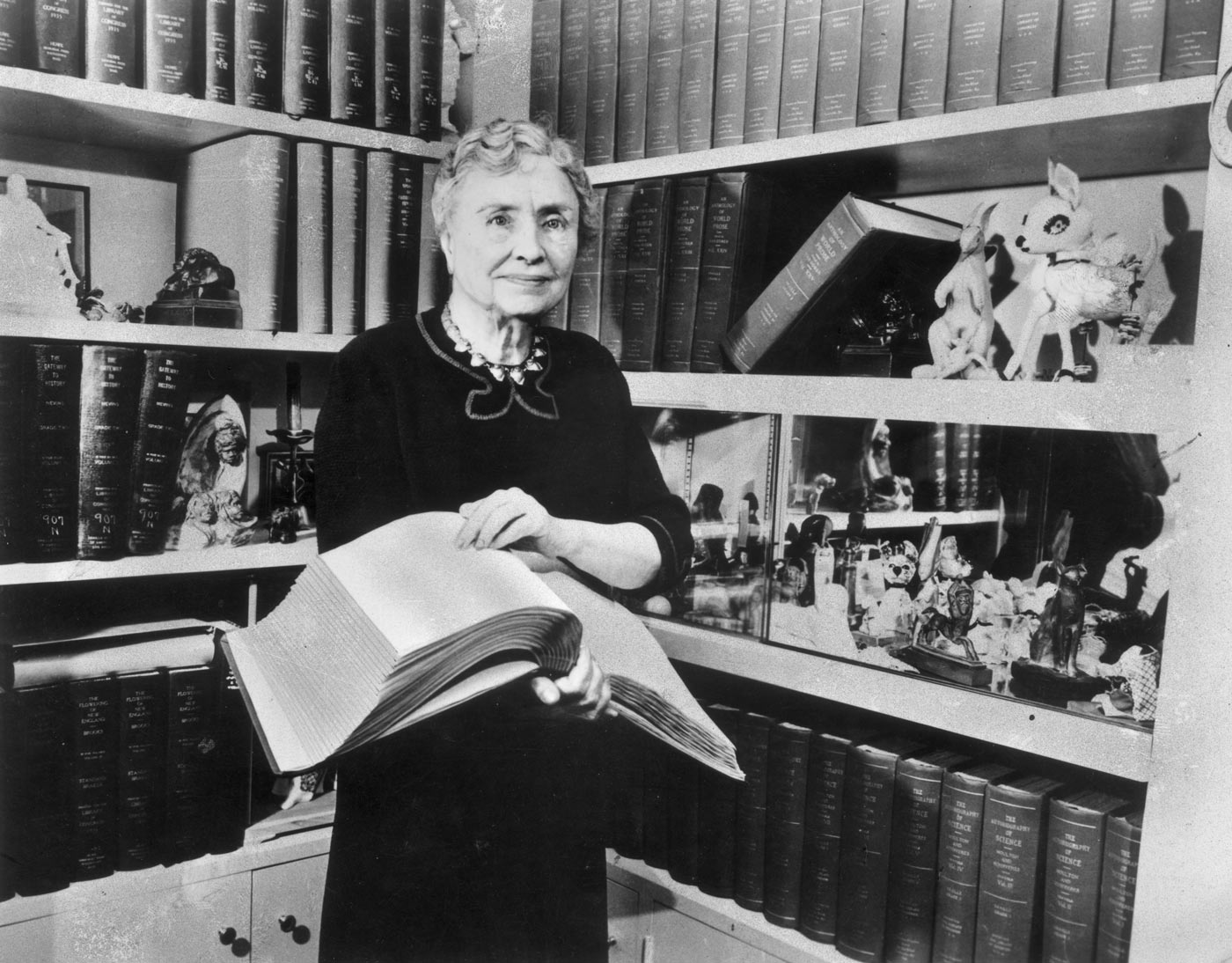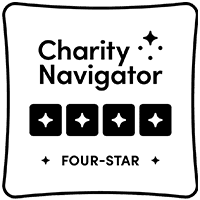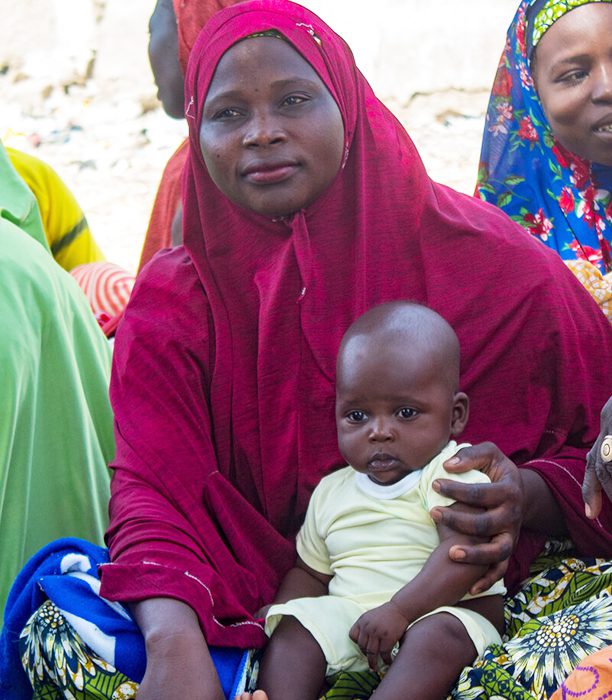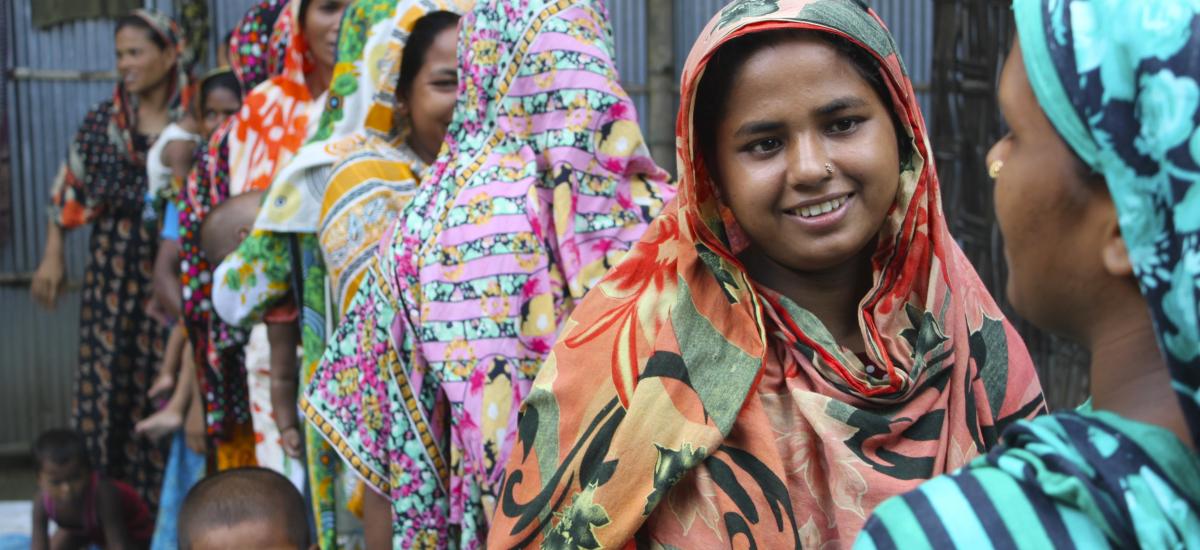
Examining Impact of Gender Relations Curriculum
“One day I returned from the field and found that [my husband] had gone to draw the water and fill the cask. He had also made the fire, and told me to go wash up before coming to cook…the women in our village, seeing a man do all this for us, have all found this a huge help. Because before, we did not have the courage to speak [about our workload]. Now you see that he does do work for you. Thus you realize that the program has really helped.”
This experience from a female farmer from Korhogo region is just one example of how gender relations within households have evolved as a result of a curriculum developed by Helen Keller International called Nurturing Connections. A team of researchers with the International Center for Research on Women (ICRW) and Helen Keller recently spoke with Nurturing Connections participants in two West African countries to see whether their relationships and behaviors had changed as a result.
Bridging the gap: Focusing on behavior change
Developed in 2013, Nurturing Connections built on 35 years of Helen Keller experience in Bangladesh. Since its introduction, the curriculum has been met with constant interest—for good reason. Although it is widely known that food security and nutrition programs will see greater success if they include a component empowering women, most interventions only seek to transfer skills and resources to them. Although this is certainly critical, because female farmers produce an estimated 20-30% less food than their male counterparts due to constraints such as limited access to farm inputs and technology, information, credit and training, it is not sufficient.
“Training women isn’t enough if when they go home they don’t have power to make decisions,” says Ramona Ridolfi, Gender Manager for HKI in Bangladesh. When women do have the power to make decisions about how money is spent, they tend to spend a larger proportion than men on food, medical care and education for their families.
Nurturing Connections helps bridge the gap between knowledge and action by providing tools for behavior change through a series of facilitated discussions and participatory exercises with key groups. The aim is to raise household awareness of gender-related constraints and enhance communication among spouses and other family members around food production and nutrition decisions.
“Women were not used to sharing difficulties with their husbands,” Ridolfi reflects. “They didn’t used to say, ‘I can’t do this, I’m too tired.’ or ‘I need to eat more, I’m too hungry.’”
When first implemented within the Building Equity in Agriculture and Markets (BEAM) project, Nurturing Connections increased women’s confidence with obtaining men’s support for household tasks and their ability to influence decisions related to their children’s health.
“In the sessions we practiced how self-valuing your opinions and respecting others’ can lead to better decision-making in the household, where we all consider everyone’s needs and priorities,” said one female participant in Malopara community in Bangladesh. “For example, recently my husband was offered to sell our cow at a very low price, however he consulted me and, together, we decided that it was not a good deal for our family income. I feel happier now, because I am aware that I can contribute to our family decisions, and I feel that my husband respects me for this”.
After deploying the curriculum in other contexts in Bangladesh, it was adapted for use in the very different contexts of rural Côte d’Ivoire and urban Senegal as part of the Creating Homestead Agriculture for Nutrition and Gender Equity (CHANGE) project, funded by Global Affairs Canada.
Focused on improving the nutritional status of women and children, CHANGE supported small-scale farmers—mainly women—to grow micronutrient-rich fruits and vegetables and raise animal-source foods while also providing nutrition education. As Stella Nordhagen, former ICRW consultant researcher and current Helen Keller Monitoring and Evaluation Advisor, explains, “Nurturing Connections was intended to complement this by increasing the women’s ability to translate this knowledge into more productive and enriching livelihoods for themselves as well as better nutrition outcomes for their families.”
In order to develop a more comprehensive picture of the impact of the curriculum, ICRW and Helen Keller conducted interviews with participants. Recurring themes included how the division of labor, nutrition and intra-household communication changed—sometimes in contrast to commonly held cultural beliefs.
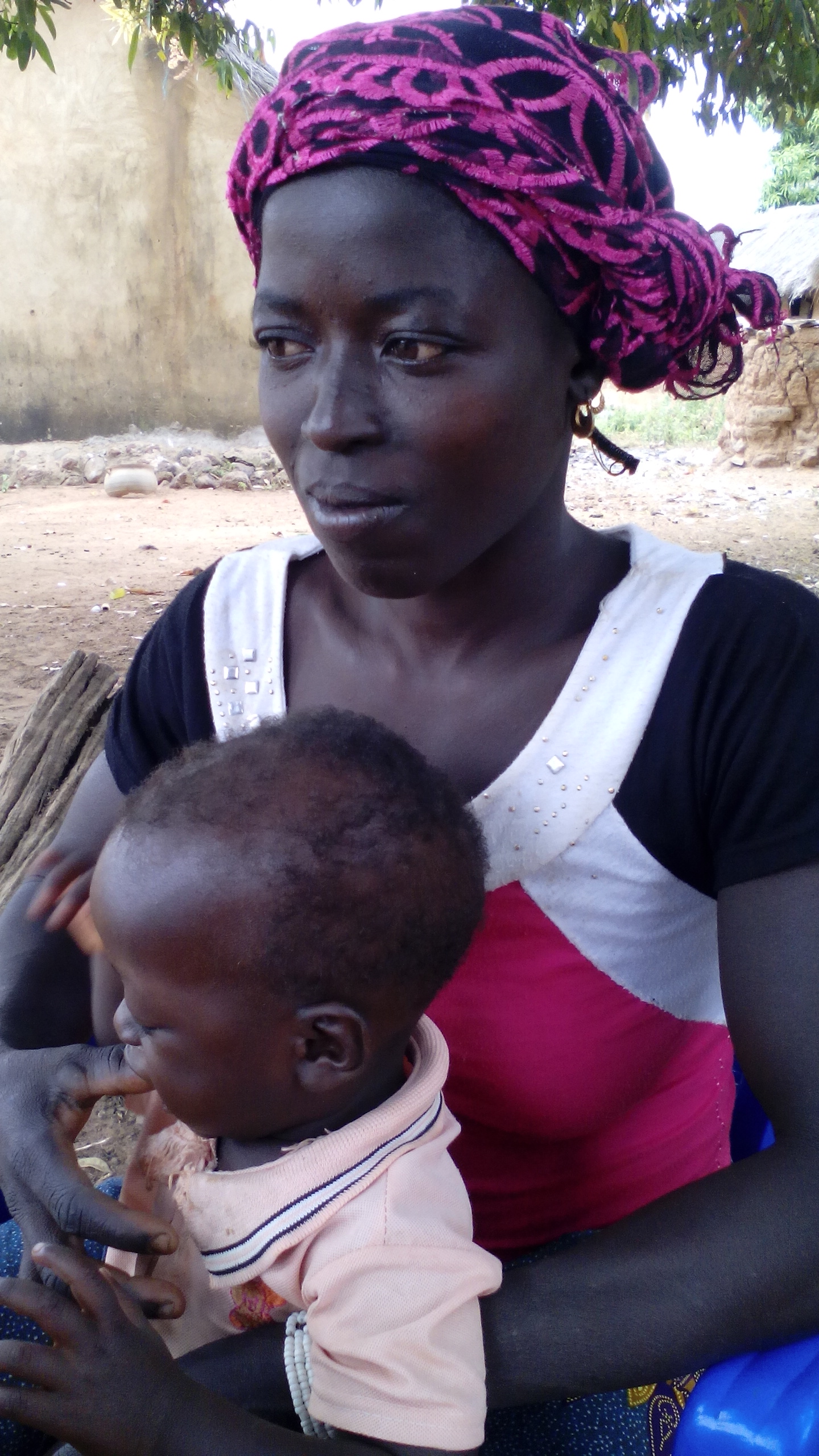
For instance, participants learned about the importance of establishing the building blocks for good nutrition. A village elder from Komborodougou said, “… At my home, Nurturing Connections taught us something. I see that it did us good. Because you know, this is what we were doing before Nurturing Connections: When we prepared some meat, such as chicken, there were the heads of the chickens, and the feet of the chickens and the toes—this is what we gave to the children. They told us to split the meat among them because they would grow. So they said to pick out the bones and let them eat the rest. Thanks to Nurturing Connections, since they taught us that, we have seen that it gives us new ideas. You have to give a child real meat to eat. Because that will give him strength, and he will grow well. Really, learning that, that did us good.”
But they gained more than knowledge about nutrition. Another participant from Korhogo said, “What I liked most is the fact that I can now face my husband and talk to him without fear. We say that you must talk to someone with your heart, it helps you to be sure of yourself—have confidence in yourself. Whatever the size of his face, you must not be afraid of him—you must talk to him. I have the courage to talk to him now. And he does what I want and helps me with things. Things that tire me—he helps me with many things. So learning this brought me help—very much.”
Cautiously optimistic about what’s to come
The curriculum is now in the early stages of yet further adaptations for use in Cambodia on a fish farming project and for indigenous populations of the Chittagong Hill Tracts in Bangladesh. Lessons learned from implementation of the curriculum in West Africa will also inform gender empowerment strategies of HKI programs in Niger, Mali and Burkina Faso. The adaptation across continent and countries shows the flexibility of the approach for tackling power relations in many diverse contexts. But perhaps one of the most promising developments is the ownership participants take of the discussions.
“People are like birds, if a bird sits five, seven times in a place, it makes its own nest in that place,” said a mother-in-law in Baliadanga community in Bangladesh. “Similarly, when people sit ten times for a good purpose, they also feel that they own that thing themselves. Now we feel that we own this process because it improves our family life.”
The spread of the approach makes Ridolfi proud, but she remains cautiously optimistic. “We’re seeing some steps forward in terms of bringing about a more equitable environment…but we’re also conscious that behavior change is a really slow process,” she says. Helen Keller has been tackling such issues in Bangladesh over the last 35 years and will continue for many years to come—as long as it takes to achieve nutrition and gender equity.
